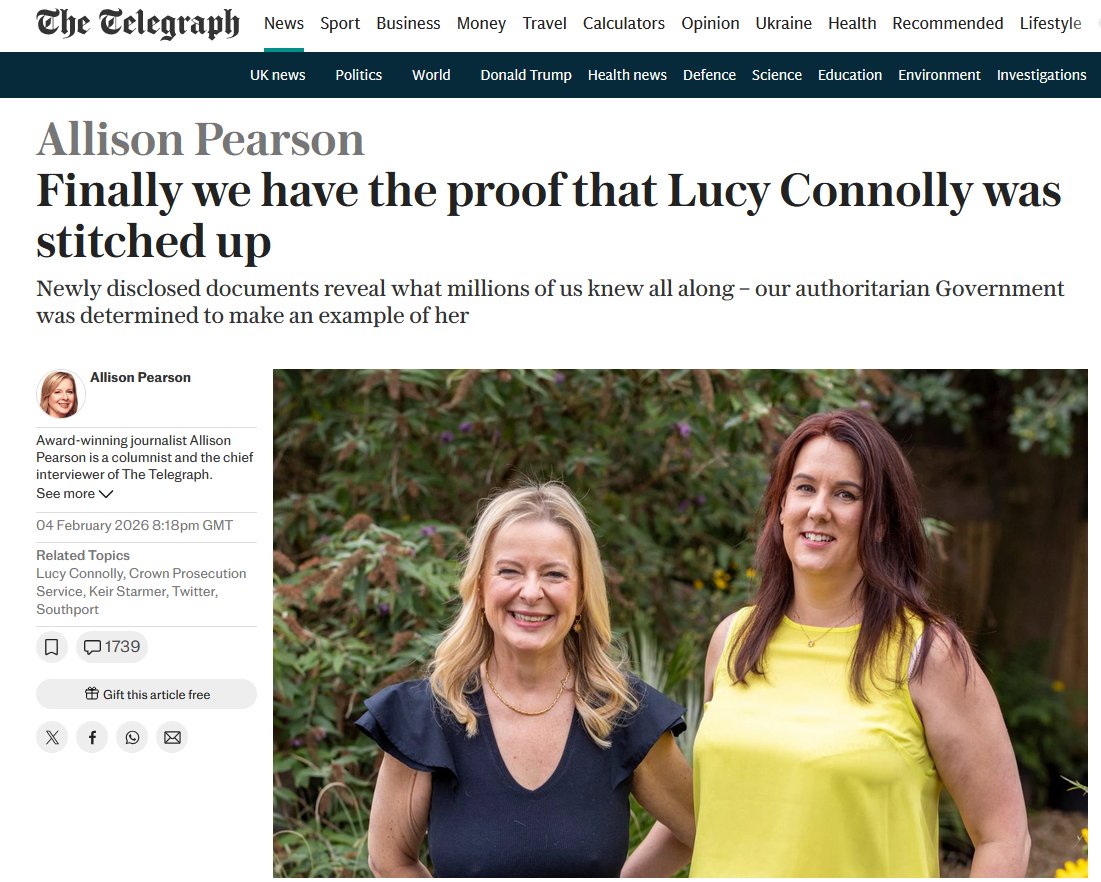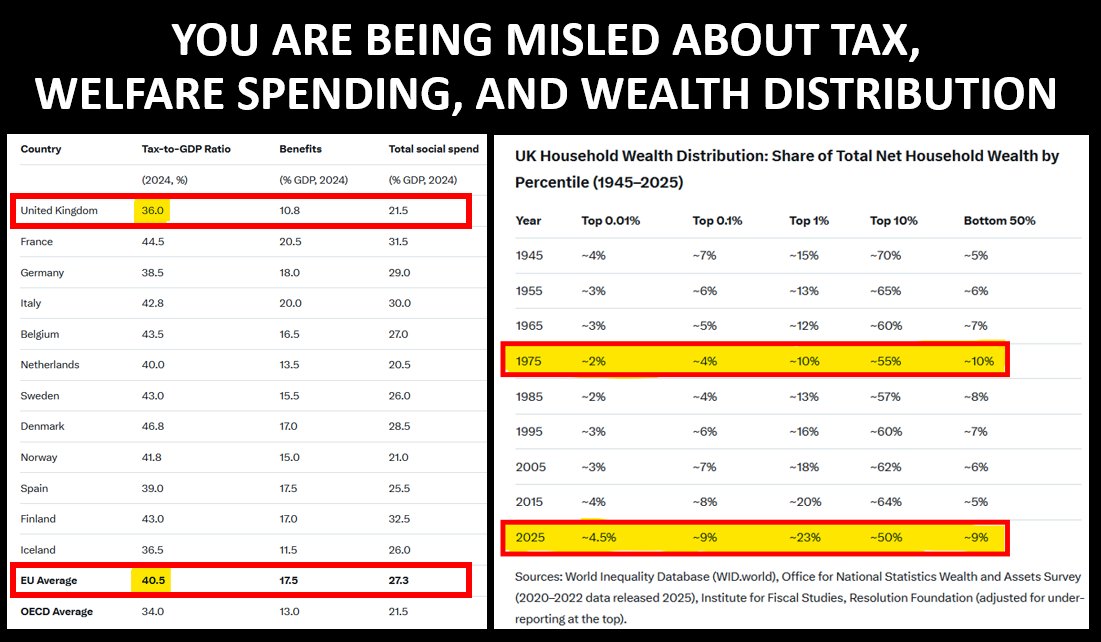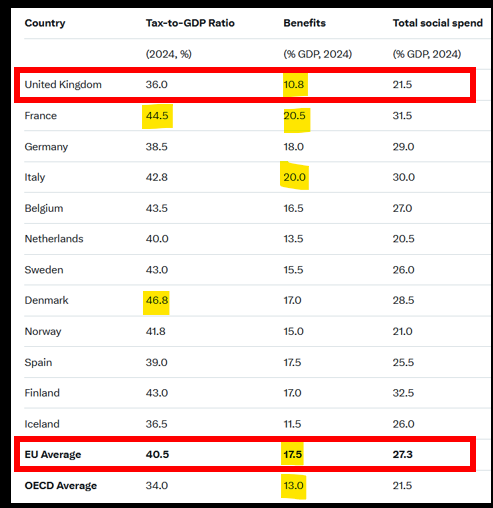Let's have a little look at the @Conservatives' record since #GE2019:
Ignored warnings & let 180,000 people die
Broke rules & laws that everyone else had to follow, then repeatedly denied doing so
Handed £BILLIONS of OUR money to THEIR mates for CRAP products that didn't work
Ignored warnings & let 180,000 people die
Broke rules & laws that everyone else had to follow, then repeatedly denied doing so
Handed £BILLIONS of OUR money to THEIR mates for CRAP products that didn't work

Killed off social mobility
Steadfastly ignored the plight of disabled people
Sold off to overseas investors almost everything left to sell off
Relentlessly demonised asylum seekers, refugees & migrants
Overseen the biggest transfer of wealth from poor to rich in living memory
Steadfastly ignored the plight of disabled people
Sold off to overseas investors almost everything left to sell off
Relentlessly demonised asylum seekers, refugees & migrants
Overseen the biggest transfer of wealth from poor to rich in living memory

Continually lied to voters
Announced their intention to destroy Human Rights
Funded their Party with dirty money from Russian oligarchs
Attacked as 'anti-British' some of our greatest institutions, such as the @BBC, the @RNLI, the @nationaltrust & the @England football team
Announced their intention to destroy Human Rights
Funded their Party with dirty money from Russian oligarchs
Attacked as 'anti-British' some of our greatest institutions, such as the @BBC, the @RNLI, the @nationaltrust & the @England football team

Voted to ignore corruption
Voted to criminalise protest
Denied structural/institutional racism exists
Voted to let children of impoverished parents starve
Voted to allow removal of UK citizenship without warning
Voted against making rented properties fit for human habitation
Voted to criminalise protest
Denied structural/institutional racism exists
Voted to let children of impoverished parents starve
Voted to allow removal of UK citizenship without warning
Voted against making rented properties fit for human habitation

Annihilated our public services
Destroyed Britain's half decent reputation
Replaced decent jobs with insecure low-paid ones
Underfunded & turned people against our wonderful #NHS
Overseen the worst #CostOfLivingCrisis in 60 years, making people choose between eating & heating
Destroyed Britain's half decent reputation
Replaced decent jobs with insecure low-paid ones
Underfunded & turned people against our wonderful #NHS
Overseen the worst #CostOfLivingCrisis in 60 years, making people choose between eating & heating

Downplayed the climate crisis by challenging the scientific consensus on net-zero
Turned our back on our neighbours by leaving the largest trading block in the world
Turned Britain into a broken, isolated, polarised, miserable, inward & backward-looking unwelcoming dystopia.🇬🇧
Turned our back on our neighbours by leaving the largest trading block in the world
Turned Britain into a broken, isolated, polarised, miserable, inward & backward-looking unwelcoming dystopia.🇬🇧
How did we get here?
Part One - it's taken forty years:
Part One - it's taken forty years:
https://twitter.com/docrussjackson/status/1359445197113950208?s=20&t=3JsMl3yXbB-Dz9w97O1HNA
How did we get here?
Part Two - the Boris Johnson years have delivered us "the most antidemocratic, intolerant & authoritarian Government... who are deliberately dismantling the progress Britain has made toward a fairer, meritocratic & equal society."
Part Two - the Boris Johnson years have delivered us "the most antidemocratic, intolerant & authoritarian Government... who are deliberately dismantling the progress Britain has made toward a fairer, meritocratic & equal society."
https://twitter.com/docrussjackson/status/1494633265147355140?s=20&t=3JsMl3yXbB-Dz9w97O1HNA
Civil disobedience is a symbolic violation of the law, rather than a rejection of the whole system: finding legitimate avenues of change blocked or nonexistent, as is the case now, people feel obligated to break specific laws. It helped stop the poll tax.
https://twitter.com/docrussjackson/status/1509459552101703688?s=20&t=8fBY2ezpq4AhMXNWF3-ycA
• • •
Missing some Tweet in this thread? You can try to
force a refresh












